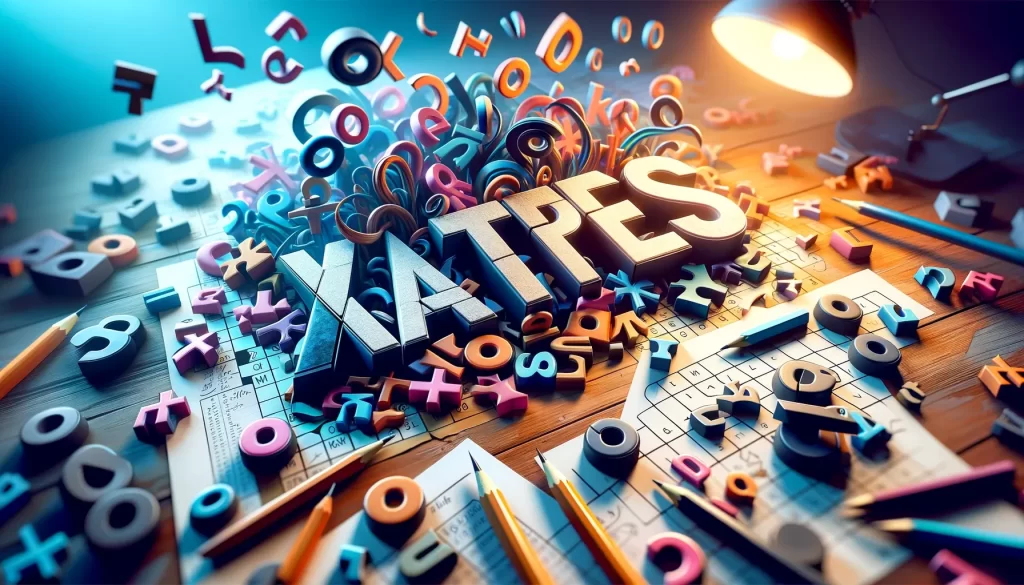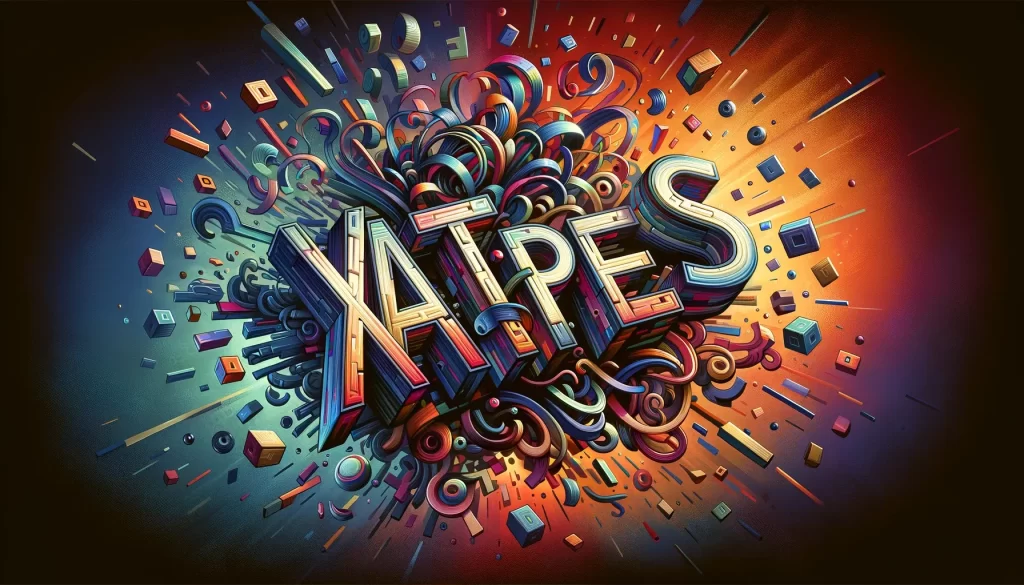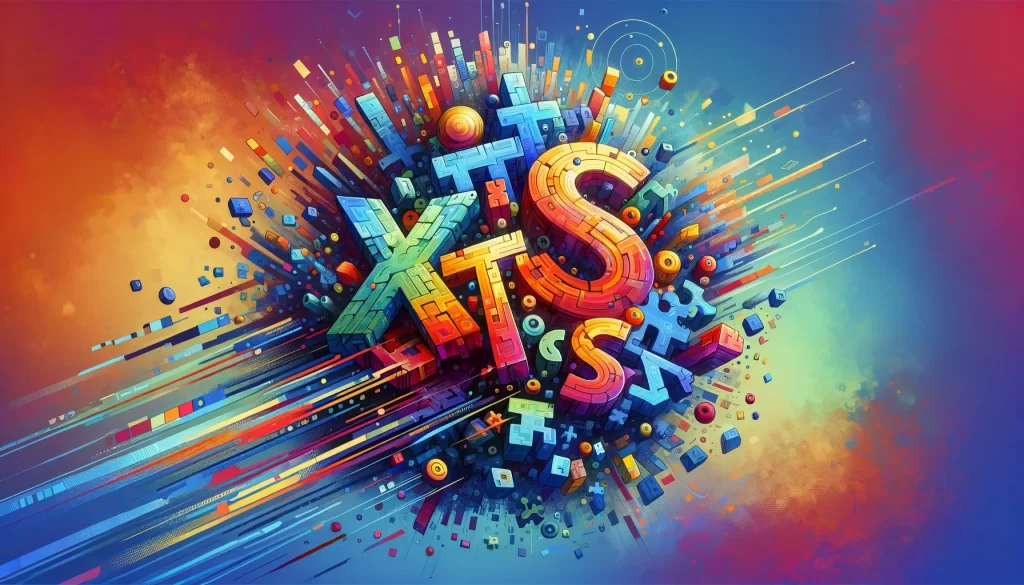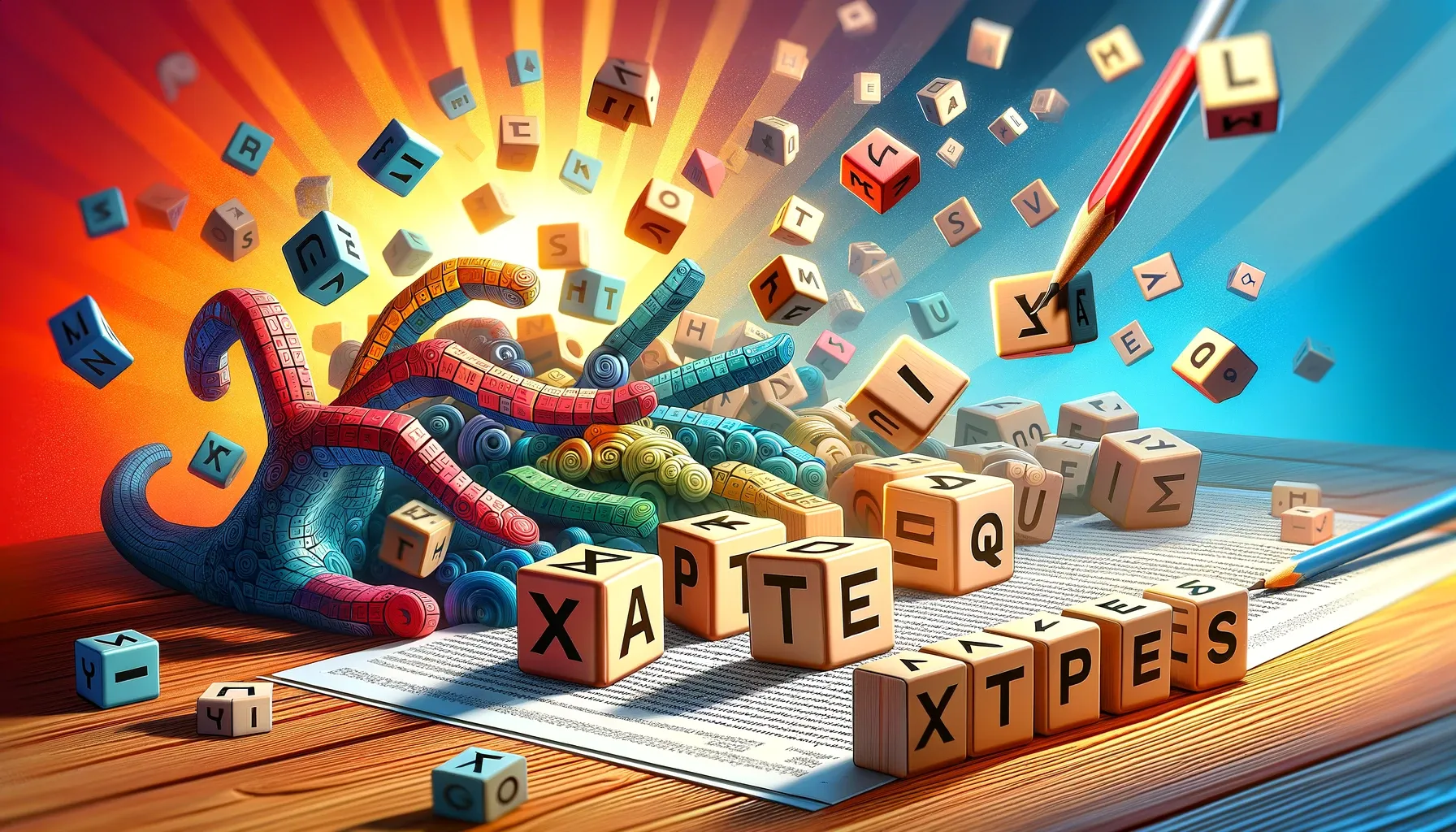Discover the secrets of XATPES for peak performance. Dive into actionable tips and insights. Elevate your experience now!
Ever ventured into the captivating realm of word games? If so, you’re familiar with the exhilaration of unraveling letters. Consider XATPES, initially a seeming jumble of characters; however, beneath the surface lies a realm of possibilities.
The Joy of Unscrambling: A Blend of Art and Science
Word games, particularly unscrambling, offer a unique challenge that not only entertains but also stimulates our brains. It goes beyond the surface, pushing us to perceive patterns and think creatively. Much like a painter envisioning a masterpiece, gamers visualize words within a mix of letters, relying on intuition and experiencing that gratifying “aha” moment when the word unfolds.
The Science Behind Unscrambling
Our brains are wired to recognize patterns, and unscrambling activates specific brain regions. It’s a mental exercise that enhances problem-solving skills and encourages lateral thinking. The more we engage in unscrambling, the more proficient we become.
So, the next time a scrambled word like XATPES appears, see it as an opportunity. Embrace the challenge, revel in the process, and understand that it’s more than a mix of letters—it’s a fusion of creativity and logic.

Historical Tidbits on Word Games
Word games have a rich history, dating back to ancient civilizations. From hieroglyphics in Egypt to anagrams crafted by Greek poets, people have reveled in playing with words long before modern languages emerged.
Ancient Roots and Renaissance
In ancient Greece, anagrams were seen as a means to unveil hidden messages. Moving to the Middle Ages, nobles and scholars saw word puzzles as tests of wit. The Renaissance saw the emergence of crossword-like puzzles, believed to sharpen the mind.
20th Century Board Games
The 20th century witnessed the popularity of board games like Scrabble, where families and friends gathered to showcase their vocabulary prowess. In the digital age, online platforms connect players worldwide, introducing words like XATPES and enticing them to delve deeper into the art of unscrambling.
Tools of the Trade: Evolution of Word Games
Word games have evolved with time, from ancient civilizations using stones and sticks to modern tools that elevate the gaming experience.
Traditional Board Games and Books
Scrabble remains a classic, with players strategically placing tiles to score points. Word puzzle books flood the market, offering solvers unique challenges and opportunities to expand their vocabulary.
The Digital Age and Technology
In the digital age, apps like Words with Friends dominate, providing a platform for global competition. Websites offer word solvers, aiding and entertaining players stuck on words like XATPES. Additionally, voice-activated tools make learning interactive, instantly providing meanings and expanding knowledge.

Diving Deeper into XATPES: Unveiling Possibilities
At first glance, XATPES may seem like a jumble, but beneath the surface lies a world of possibilities.
Unscrambling Strategies
Unscrambling is not just about points; it’s about the thrill of discovery. XATPES, when unscrambled, can reveal words like “taxes” or “paste.” Players strategize to maximize points, considering where to place the word on the board and which letter to start with.
The Fun of Unscrambling
XATPES embodies the joy of unscrambling, teaching us that word games are not just about the final word but also about the journey, the challenge, and the satisfaction of solving.
Great post to read: Do You Tip Travel Agents
Unscrambling Techniques for Newbies
Unscrambling is a skill that improves with practice. Here are some techniques for beginners:
Practical Tips for Newcomers
- Begin with Short Words: Start small with two or three-letter words to guide you to larger ones.
- Use Common Prefixes and Suffixes: Identify familiar beginnings or endings, such as “un-,” “pre-,” “ed,” or “ing.”
- Group Vowels and Consonants: Separate letters to visualize potential combinations easily.
- Look for Common Word Pairings: Identify frequently paired letters like “th,” “st,” or “qu.”
- Rearrange Physically: Write letters on paper and move them around for visual combinations.
- Say the Letters Aloud: Pronouncing can trigger word recognition.
- Practice with Word Apps: Utilize apps focused on unscrambling to sharpen your skills.
- Challenge Yourself: Set a timer to boost quick thinking and unscramble within a limit.
- Stay Updated on Vocabulary: Improve your skills by expanding your word knowledge.
- Stay Persistent: Like any skill, improvement comes with time and practice.

The Psychology Behind Letter Arrangement
The human brain craves order and patterns, influencing the psychology behind letter arrangement.
Evolutionary Perspective
Our brain’s pattern recognition, essential for survival in early humans, now aids in deciphering words. When faced with jumbled letters, the brain activates problem-solving centers, seeking meaning and releasing dopamine, creating a sense of satisfaction.
XATPES in Pop Culture: A Trending Phenomenon
Pop culture embraces trends and buzzwords, with word games taking center stage in various forms of entertainment.
Influence in Different Mediums
From shows like “Wheel of Fortune” to movies with spellbinding scripts, jumbled words add suspense and mystery. Music, books, and online platforms all contribute to the popularity of word games, turning them into viral challenges and engaging discussions.
The Future of Unscrambling: Embracing Technology
Unscrambling’s future looks promising as technology continues to shape its trajectory.
Technological Innovations
Imagine augmented reality games where players unscramble words in real-time, or virtual reality experiences where players physically interact with letters in a 3D space. AI will also play a role, offering adaptive challenges and increasing difficulty levels.
Educational Integration
Education will harness unscrambling, using advanced tools to make learning interactive. Online platforms will evolve to offer global challenges, fostering competition and knowledge-sharing.
People Also Ask
What is unscrambling in the context of word games?
How can unscrambling benefit the brain?
Are there tools to help with unscrambling words?
Can the word “XATPES” be unscrambled?
How do I get better at unscrambling?
Final Words
In the world of word games, unscrambling stands as a testament to our cognitive abilities. From ancient puzzles to modern apps, the journey continues to captivate us. XATPES, with its seemingly chaotic letters, demonstrates that within every jumble, a solution awaits. Embrace the magic of unscrambling, and let words reveal their hidden stories.

